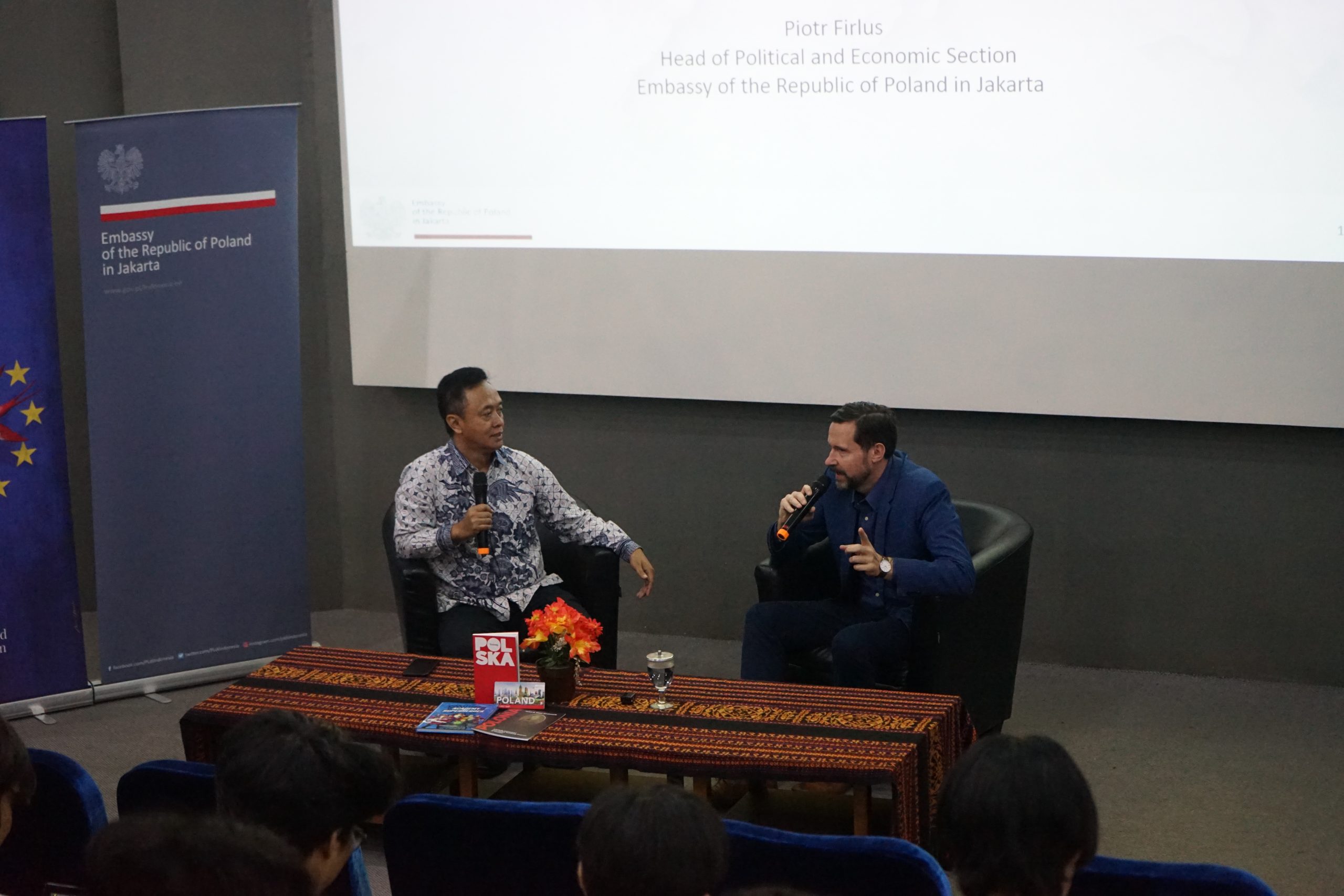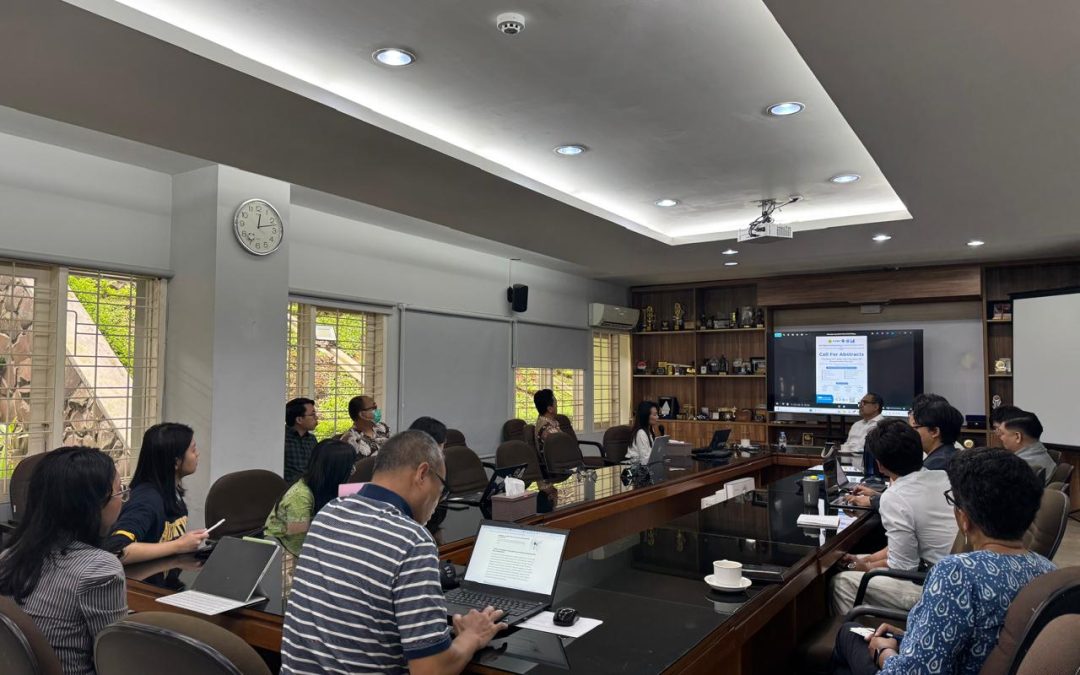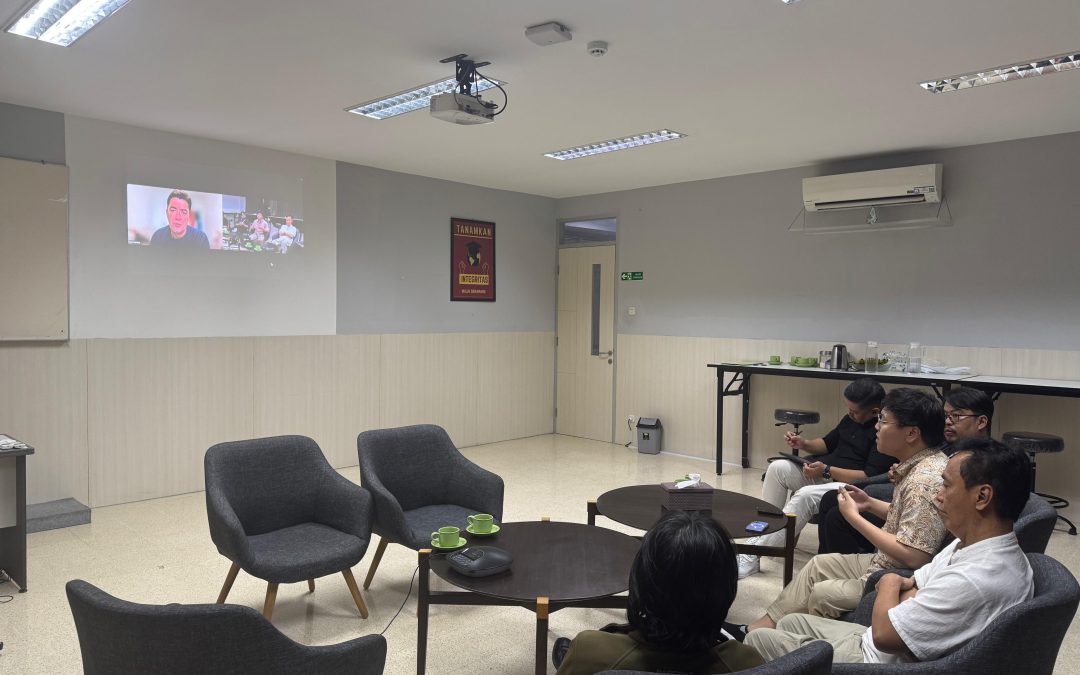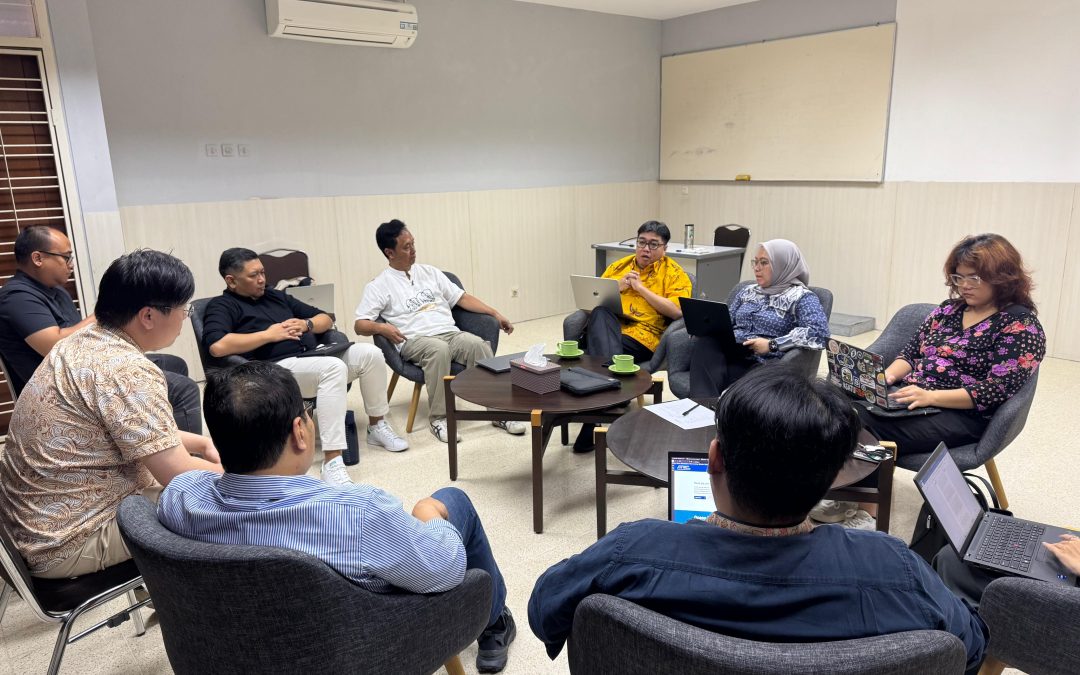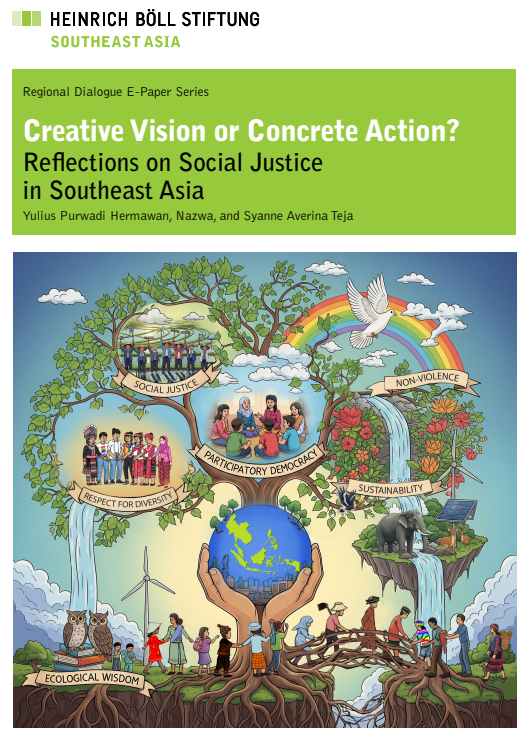Kuliah Tamu Piotr Firlus, Counsellor, Head of Political and Economic Section, Kedutaan Besar Polandia untuk Indonesia
Polandia memiliki posisi geopolitik yang sangat unik. Di masa lalu, Polandia berada dalam pengaruh Uni Soviet dalam wadah Pakta Warsawa, yang menjadi saingan utama NATO di masa Perang Dingin. Sejak berakhirnya Perang Dingin, Polandia memutuskan bergabung dalam NATO pada tahun 1999 dan menjadi anggota Uni Eropa pada tahun 2004. Posisinya yang berbatasan langsung dengan Ukraina menjadikan negara tersebut memiliki peran strategis dalam penanganan dampak konflik Rusia dan Ukraina. Polandia saat ini juga menjadi bagian dari peta jalan Belt and Road Initiative (BRI) China yang membuat posisi Polandia menjadi semakin penting.
Mempertimbangkan posisi dan peran unik dan penting tersebut, PACIS-PACES mengundang Piotr Firlus, Kepala Seksi Politik dan Ekonomi Kedutaan Besar Polandia untuk Indonesia, berbagi pandangan dan berdiskusi dengan dosen dan mahasiswa Universitas Katolik Parahyangan (Unpar) dalam sesi Kuliah Tamu pada tanggal 5 Juni 2024.
Dalam paparannya, diplomat yang pernah bekerja dalam kantor Perdana Menteri Polandia tersebut, menyampaikan manfaat yang telah diperoleh Polandia sejak bergabung dalam Uni Eropa di tahun 2004. Pertumbuhan GDP Polandia merupakan kedua yang tertinggi di dunia dalam kurun waktu 30 tahun terakhir. Capaian ini disusul dengan Indonesia yang menempati posisi ketiga. Saat ini, perekonomian Polandia menempati ranking 21, sementara Indonesia pada ranking 16. Dengan capaian tersebut, Polandia dan Indonesia memiliki alasan kuat untuk terus mengembangkan hubungan diplomatik yang telah dibangun selama 69 tahun.
Uni Eropa merupakan organisasi regional yang diyakini paling maju. Lembaga tersebut telah memiliki Custom Union yang sangat kuat. Custom Union tersebut ditandai dengan wilayah perdagangan bebas, perbatasan eksternal tunggal, tidak adanya tarif di antara anggota-anggota Uni Eropa, dan terbentuknya tarif kolektif bagi negara-negara non anggota yang ditetapkan dan dikelola oleh Komisi Eropa.
Sistem ini telah membuat para pelaku bisnis Polandia dapat berkompetisi dengan para pelaku bisnis dari negara-negara anggota Uni Eropa lainnya. Custom Union telah berhasil mengangkat pertumbuhan ekonomi Polandia.
Diplomat yang mulai bekerja dalam Kementerian Luar Negeri Polandia sejak 2018 tersebut mengakui bahwa negara-negara anggota Uni Eropa harus meletakkan sebagian kedaulatannya untuk mendukung sistem dan integrasi Eropa dapat berfungsi dengan optimal. Dengan cara tersebut, Polandia dapat menciptakan kesejahteraan bagi masyarakatnya.
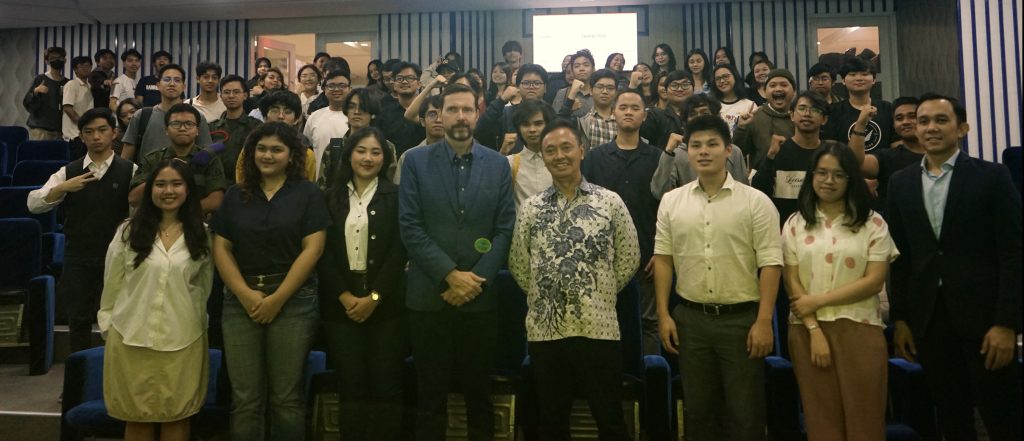
Polandia juga telah memainkan peran penting dalam upaya global mengatasi perubahan iklim. Polandia telah menjadi tuan rumah penyelenggaraan Conference of Parties (COP) sebanyak tiga kali, yaitu COP 14 di Poznan tahun 2008), COP 19 di Warsawa tahun 2013 dan COP 24 di Katowice tahun 2018.
Dalam diskusi tersebut, muncul banyak pertanyaan dari para peserta. Di antaranya adalah mengapa Polandia belum menggunakan mata uang Euro, prioritas-prioritas apakah yang ditekankan dalam hubungan Polandia dan Ukraina, peran Polandia dalam mendukung resolusi konflik Rusia dan Ukraina, serta isu-isu yang terkait hubungan Indonesia dan Uni Eropa seperti kelapa sawit mentah dan bijih Nikel.
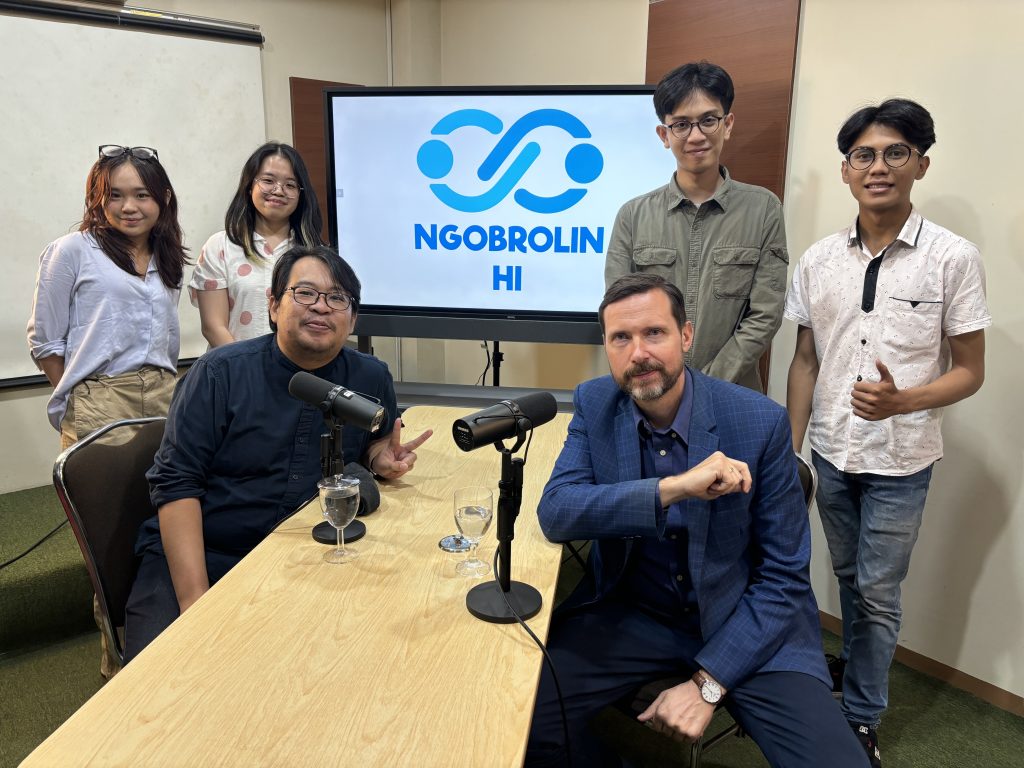
Dalam kesempatan kunjungan ke Unpar, diplomat yang akan segera mengakhiri tugasnya di Jakarta Indonesia tersebut berbagi perspektifnya tentang hubungan Polandia dan Indonesia, dan posisi Polandia dalam merespon perkembangan isu geopolitik kontemporer melalui Podcast Ngobrolin HI (Adelia Jessica dan Yulius P Hermawan).
English Translation (Adelia J)
Guest Lecture with Piotr Firlus, Counsellor, Head of Political and Economic Section of the Embassy of the Republic of Poland in Indonesia
It is generally understood that Poland has a unique geopolitical position in the world. In the past, Poland was under the influence of the Soviet Union within the Warsaw Pact which became NATO’s main rival during the Cold War period. As the global conflict reached its end, Poland decided to join NATO in 1999 and officially became a member of the European Union in 2004. Nowadays, its direct proximity to Ukraine makes the country have an exceptionally strategic role in handling the impact of the Russia-Ukraine war. Poland is currently also projected to be a part of China’s Belt and Road Initiative (BRI) roadmap, which makes Poland’s position more important than ever.
Understanding Poland’s distinctive position and role within the present European political dynamic, PACIS-PACES invites Mr. Piotr Firlus, Counsellor and Head of Political and Economic Section of the Embassy of the Republic of Poland in Indonesia to share his views as well as discuss several issues with lecturers and students of Parahyangan Catholic University (Unpar) in a guest lecture session on June 5, 2024.
The diplomat, who once worked for Poland’s Office of Prime Minister, shared several benefits felt by the country upon joining the Union. For instance, Poland’s GDP growth was the second highest in the world in the last 30 years. This achievement was closely followed by Indonesia which ranked third highest. Along with the aforementioned classification, the economy of Poland was ranked to be 21st in the world while Indonesia is ranked 16th. With such positive circumstances between two countries, it is clear that Poland and Indonesia have strong reasons to continue developing the long standing diplomatic relations that have been built for 69 years.
The discussion continues as Mr. Firlus comprehensively talks about the European Union. Believed to be the most advanced regional organization, the Union consists of a body called Customs Union which is characterized by the existence of a free trade area, a single external border, absence of tariffs between European Union members, and the formation of collective tariffs for non-member countries which are determined and managed by the European Commission.
The existence of the Customs Union allows Poland to experience a major increase in Poland’s economic growth as it enables Polish businesses to compete with economic entities from other member states.
Mr. Firlus also acknowledges that European Union member states must yield some of their sovereignty to support the Union’s system and integration to function optimally. However, it outweighs the benefits obtained- as the important matter for the government is to create prosperity for Polish people.
In addition to that, Mr. Firlus eagerly discussed the important role Poland has played in tackling several global matters. One of which is the climate change issue, as Poland has hosted the Conference of Parties three times: COP 14 in Poznan (2008), COP 19 in Warsaw (2013) and COP 24 in Katowice (2018).
Reaching the end of the session, many questions emerged from the participants. Among these are questions about why Poland has not used the Euro currency, what priorities are emphasized in relations between Poland and ukraine, Poland’s role in supporting the resolution of the conflict between Russia and Ukraine, as well as issues related to relations between Indonesia and the European union such as raw palm oil (CPO) and nickel ore.
Before ending his visit, Mr. Firlus, who will soon end his duties in Jakarta, Indonesia, shared his perspective on relations between Poland and Indonesia, along with the country’s position in responding to the developments in contemporary geopolitical issues through the Ngobrolin HI Podcast. (Adelia Jessica and Yulius P Hermawan)

